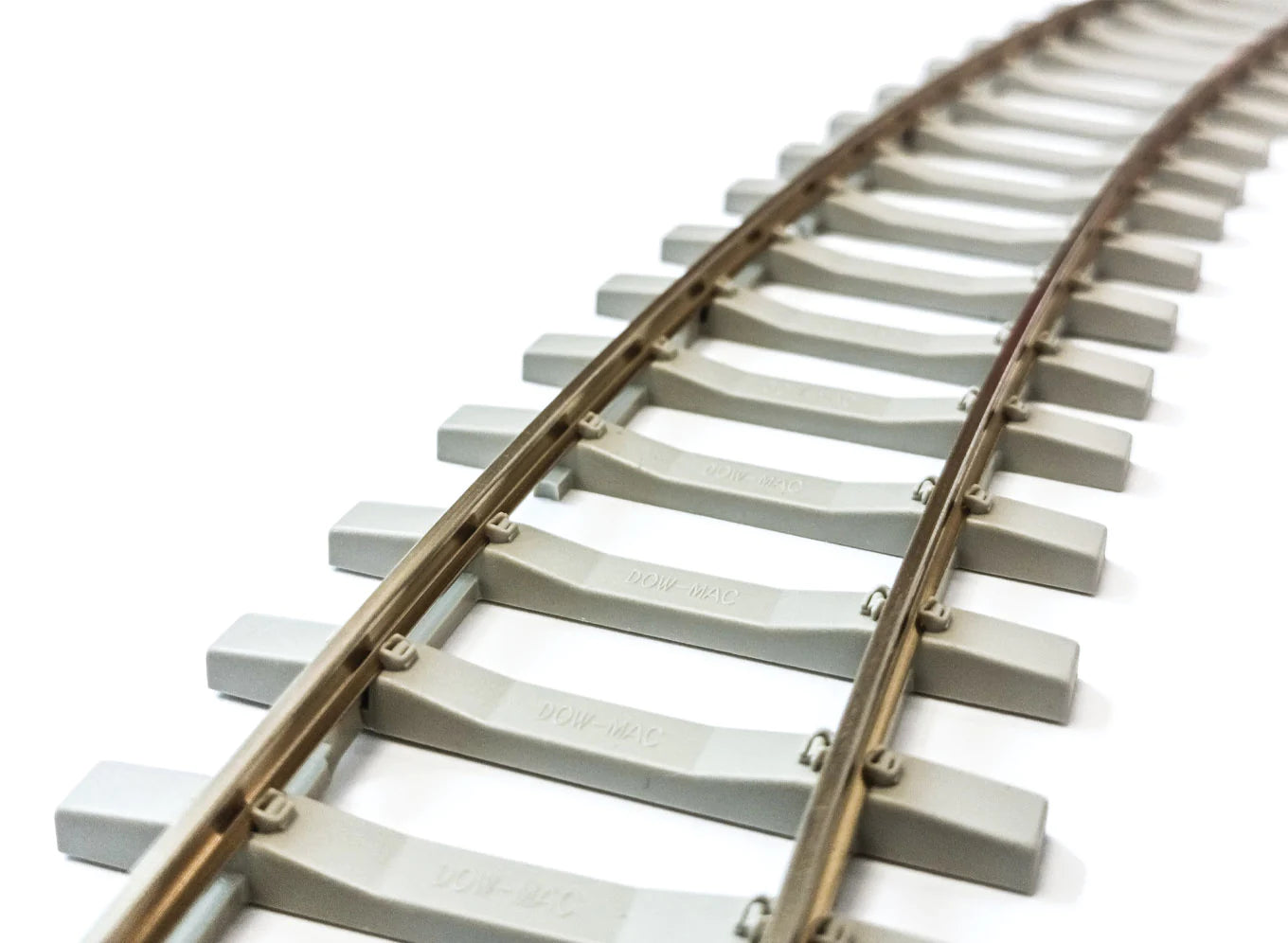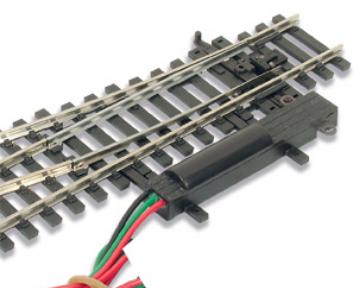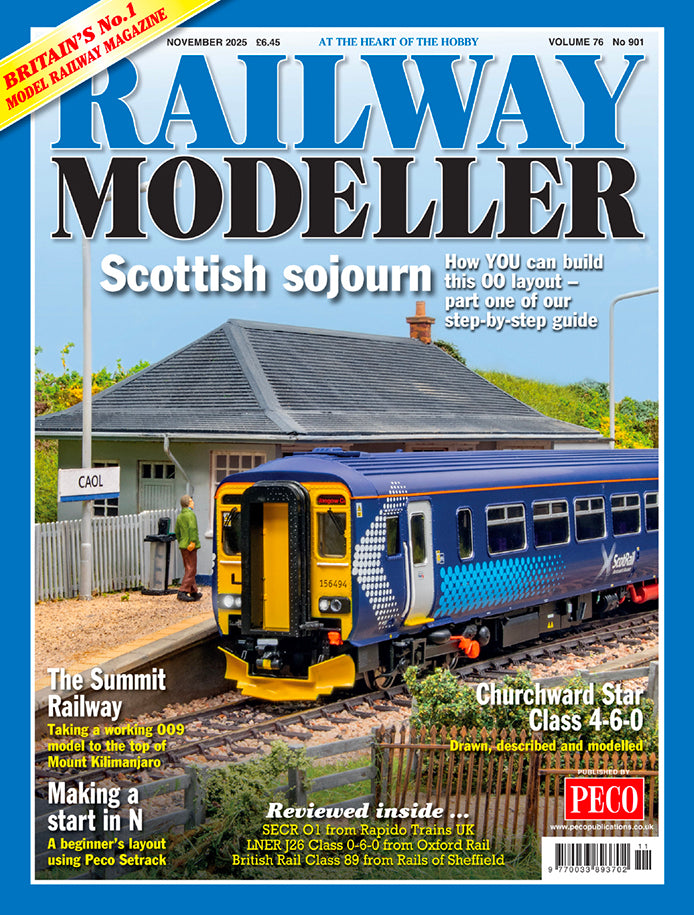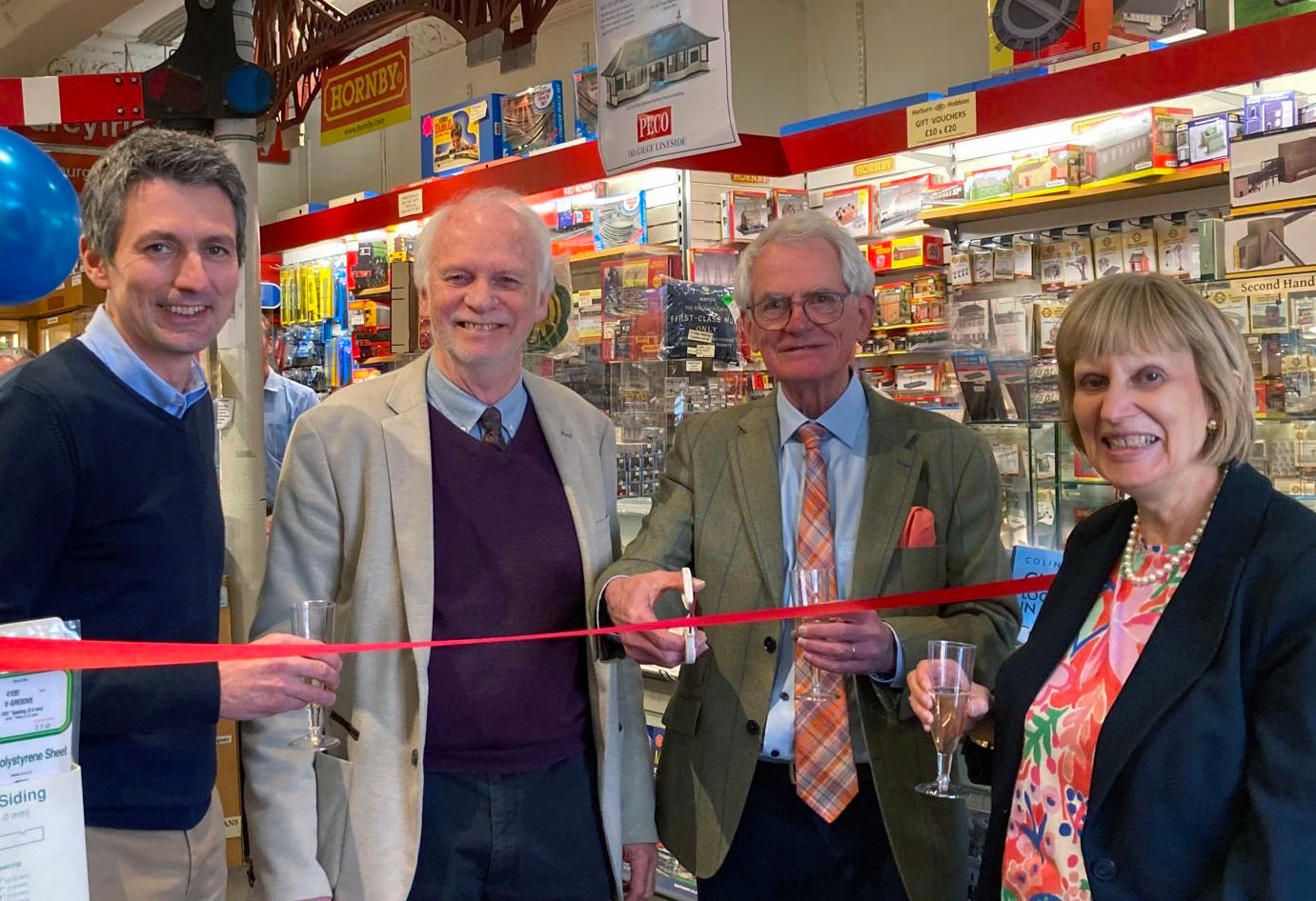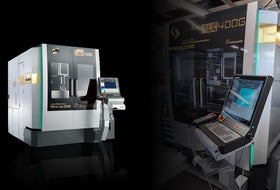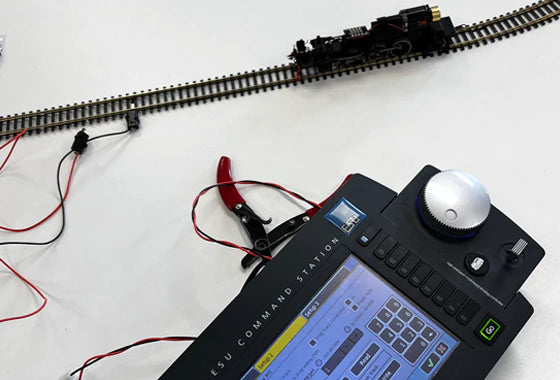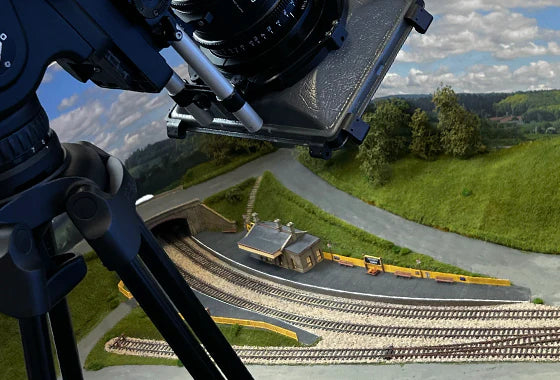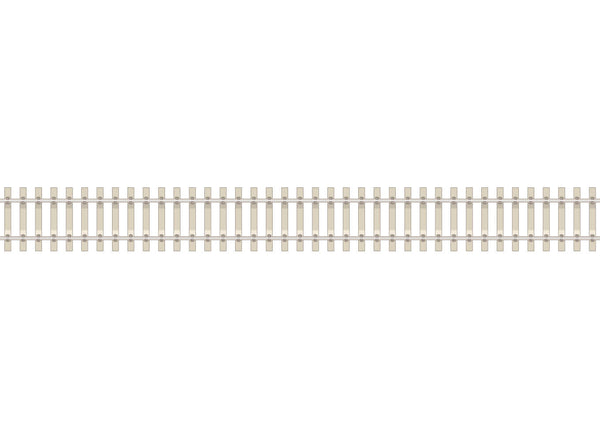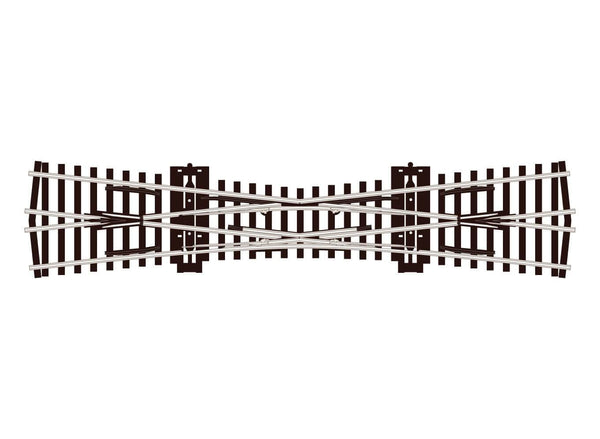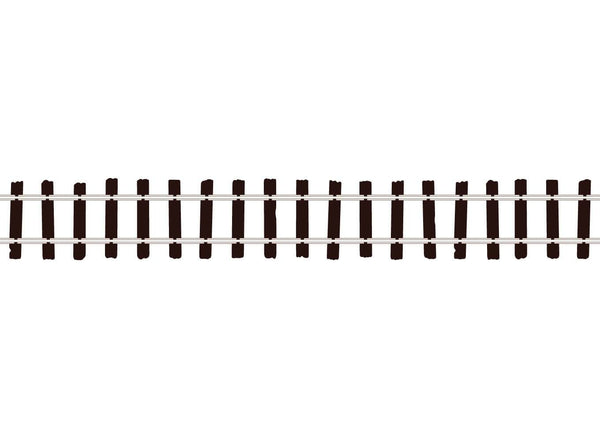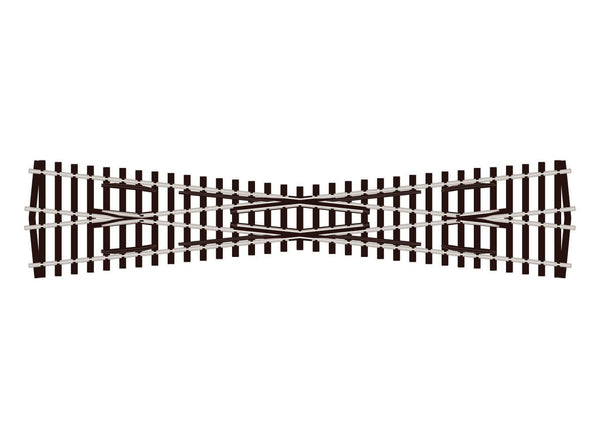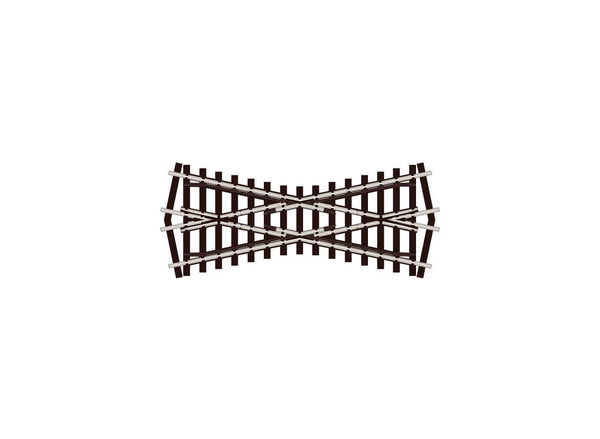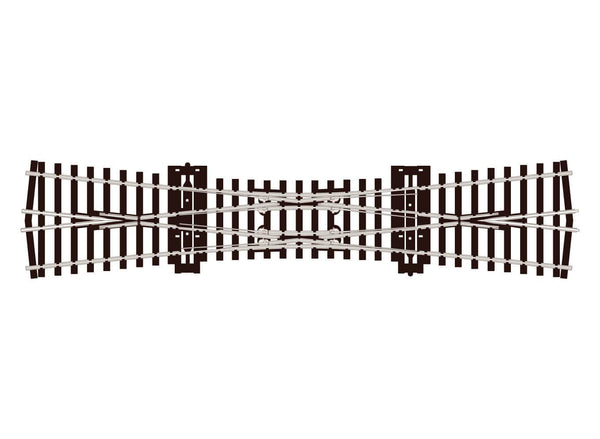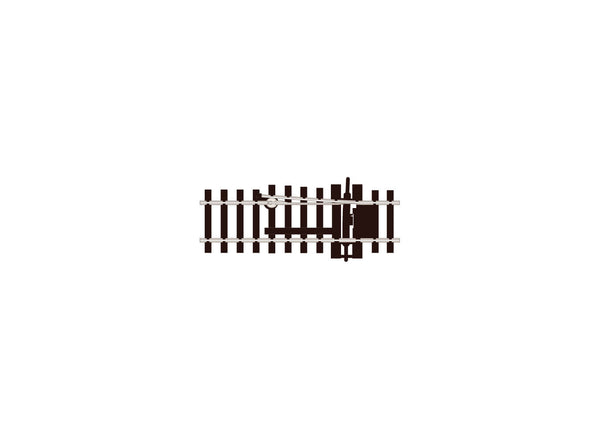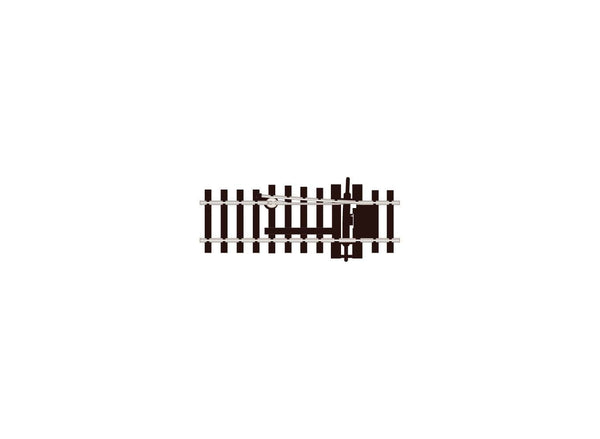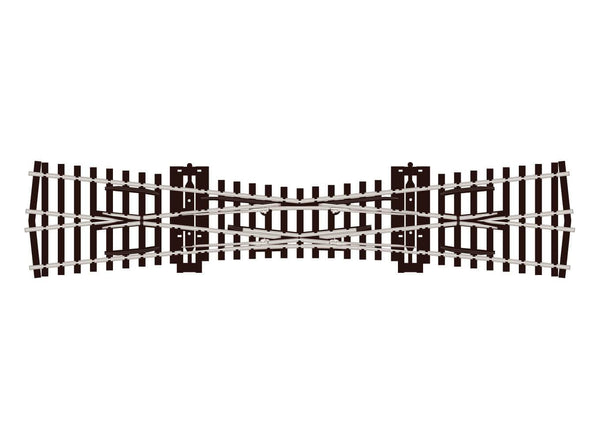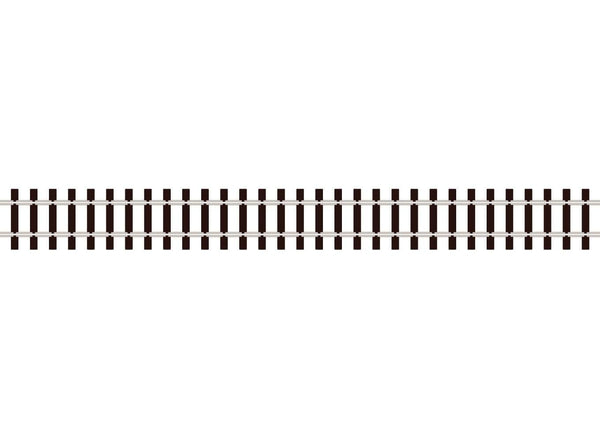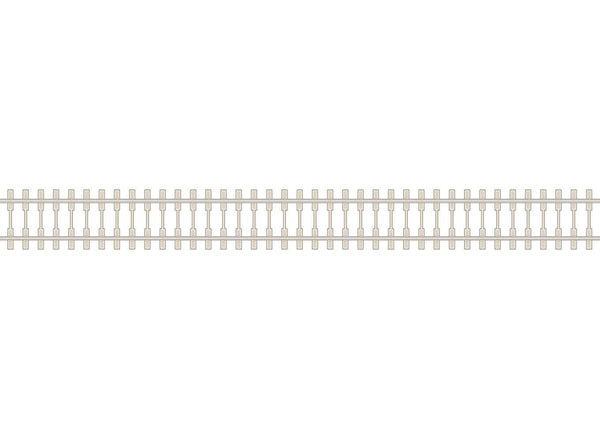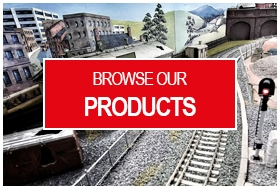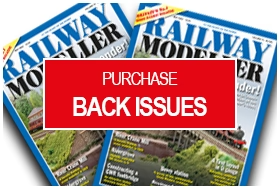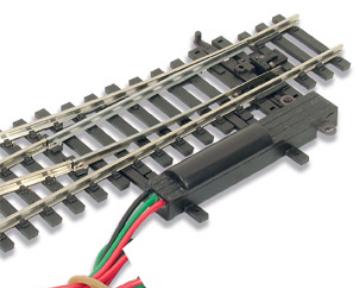BROWSE PECO PRODUCTS
Browse through our complete product portfolio.
246 Products Found
Flexible Track, Concrete Sleeper
83 Line items are realistic models of North American railroad track, with Code 83 nickel silver rail. Scaled from A.R.E.A. drawings and NMRA compliant, Code 83 features authentic tie sizes and spacing, the standard American number system for frog geometry, plus a very fine representation of the rail fixings.
Crossing, Single Slip
Single slips were often used on double track lines to incorporate a trailing crossover into the access for a siding, goods yard etc.
If you wish to mix wheel standards on your 00/H0 layout, this is the trackage to choose. Code 100 rail allows flange depths up to 1.6mm which means that both vintage and current stock will run happily together.
The wide range of turnouts and crossings in this series includes every type, and the geometry of this range has been cleverly designed to make it easy to build convenient, complex and aesthetically pleasing formations using combinations of small, medium and large radius turnouts and crossings. Layout plans suggestions can be found in our publications ‘Track Plans for Layouts to Suit all Locations’ (Ref PM-202), ‘60 Plans for Small Railways’ (Ref no PB-3), and ‘Track Plans for Various Locations’ (Ref no PB-66).
Flexible Track, Wooden Sleeper
16.5mm gauge track in 7mm scale gives an equivalent prototype of 2ft 4 ins, making it a popular choice for modellers, this scale is also known as 0n30 in the USA because this results in a prototype gauge close to 30ins. many modellers find that this scale/gauge allows an ideal combination of scale detail in a relatively small space.
Crossing, Long
This unit can be used with small, medium, or large radius turnouts to form a double junction.
Peco Streamline Code 75 track meets the standards of enthusiasts who prefer to run trains on scale height rail. Today most manufacturers' wheels are suitable for use on Code 75 track but some vintage models may have flanges which are too deep to clear the rail fixings. Code 75 can be easily combined with code 100 track by using the SL-113 Transition Track.
The wide range of turnouts and crossings in this series includes every type, and the geometry of this range has been cleverly designed to make it easy to build convenient, complex and aesthetically pleasing formations using combinations of small, medium and large radius turnouts and crossings. Layout plans suggestions can be found in our publications ‘Track Plans for Layouts to Suit all Locations’ (Ref PM-202), ‘60 Plans for Small Railways’ (Ref no PB-3), and ‘Track Plans for Various Locations’ (Ref no PB-66).
Crossing, Short
The Short Crossing is double the angle of other track components in this range, this enables it to be used to form scissors formations in conjunction with them. Also, a compact double junction can be formed by using it with 2 short Y turnouts SL-E197 (Overall length 275mm).
Peco Streamline Code 75 track meets the standards of enthusiasts who prefer to run trains on scale height rail. Today most manufacturers' wheels are suitable for use on Code 75 track but some vintage models may have flanges which are too deep to clear the rail fixings. Code 75 can be easily combined with code 100 track by using the SL-113 Transition Track.
The wide range of turnouts and crossings in this series includes every type, and the geometry of this range has been cleverly designed to make it easy to build convenient, complex and aesthetically pleasing formations using combinations of small, medium and large radius turnouts and crossings. Layout plans suggestions can be found in our publications ‘Track Plans for Layouts to Suit all Locations’ (Ref PM-202), ‘60 Plans for Small Railways’ (Ref no PB-3), and ‘Track Plans for Various Locations’ (Ref no PB-66).
For more details on Electrofrog turnouts, see our Wiring the Layout publications Nos 4 and 21.
Crossing, Double Slip
Double slips can save valuable space at station approaches, junctions etc.
Peco Streamline Code 75 track meets the standards of enthusiasts who prefer to run trains on scale height rail. Today most manufacturers' wheels are suitable for use on Code 75 track but some vintage models may have flanges which are too deep to clear the rail fixings. Code 75 can be easily combined with code 100 track by using the SL-113 Transition Track.
The wide range of turnouts and crossings in this series includes every type, and the geometry of this range has been cleverly designed to make it easy to build convenient, complex and aesthetically pleasing formations using combinations of small, medium and large radius turnouts and crossings. Layout plans suggestions can be found in our publications ‘Track Plans for Layouts to Suit all Locations’ (Ref PM-202), ‘60 Plans for Small Railways’ (Ref no PB-3), and ‘Track Plans for Various Locations’ (Ref no PB-66).
Catch Turnout, Left Hand
The purpose of a Catch Turnout is to derail a vehicle before it rolls out of a siding or branch line on to a main line.
Peco Streamline Code 75 track meets the standards of enthusiasts who prefer to run trains on scale height rail. Today most manufacturers' wheels are suitable for use on Code 75 track but some vintage models may have flanges which are too deep to clear the rail fixings. Code 75 can be easily combined with code 100 track by using the SL-113 Transition Track.
The wide range of turnouts and crossings in this series includes every type, and the geometry of this range has been cleverly designed to make it easy to build convenient, complex and aesthetically pleasing formations using combinations of small, medium and large radius turnouts and crossings. Layout plans suggestions can be found in our publications ‘Track Plans for Layouts to Suit all Locations’ (Ref PM-202), ‘60 Plans for Small Railways’ (Ref no PB-3), and ‘Track Plans for Various Locations’ (Ref no PB-66).
Catch Turnout, Right Hand
The purpose of a Catch Turnout is to derail a vehicle before it rolls out of a siding or branch line on to a main line.
Peco Streamline Code 75 track meets the standards of enthusiasts who prefer to run trains on scale height rail. Today most manufacturers' wheels are suitable for use on Code 75 track but some vintage models may have flanges which are too deep to clear the rail fixings. Code 75 can be easily combined with code 100 track by using the SL-113 Transition Track.
The wide range of turnouts and crossings in this series includes every type, and the geometry of this range has been cleverly designed to make it easy to build convenient, complex and aesthetically pleasing formations using combinations of small, medium and large radius turnouts and crossings. Layout plans suggestions can be found in our publications ‘Track Plans for Layouts to Suit all Locations’ (Ref PM-202), ‘60 Plans for Small Railways’ (Ref no PB-3), and ‘Track Plans for Various Locations’ (Ref no PB-66).
Crossing, Single Slip
Single slips were often used on double track lines to incorporate a trailing crossover into the access for a siding, goods yard etc.
Peco Streamline Code 75 track meets the standards of enthusiasts who prefer to run trains on scale height rail. Today most manufacturers' wheels are suitable for use on Code 75 track but some vintage models may have flanges which are too deep to clear the rail fixings. Code 75 can be easily combined with code 100 track by using the SL-113 Transition Track.
The wide range of turnouts and crossings in this series includes every type, and the geometry of this range has been cleverly designed to make it easy to build convenient, complex and aesthetically pleasing formations using combinations of small, medium and large radius turnouts and crossings. Layout plans suggestions can be found in our publications ‘Track Plans for Layouts to Suit all Locations’ (Ref PM-202), ‘60 Plans for Small Railways’ (Ref no PB-3), and ‘Track Plans for Various Locations’ (Ref no PB-66).
Flexible Track, Wooden Sleeper
Three feet was the gauge chosen by American railroad engineers faced with the task of bringing full sized trains into mountainous terrain. The matching turnouts feature our new versatile Unifrog design which can be operated, powered and switched like an Electrofrog or left unpowered if preferred.
Flexible Track, Wooden Sleeper
This 12mm gauge track system is accurately modelled in H0 on the metre gauge track found in Europe, most notably in Switzerland. It is also useful for modelling the 3ft 6ins track found in southern Africa, Japan, Australia, Norway and parts of South America; in 4mm scale the gauge is correct for the many 3ft gauge lines formerly found in Ireland and the Isle of Man. This versatile track could also be used for modelling in TT (3mm/ft scale)
Flexible Track, Bibloc Sleeper
Bibloc track is the latest form of concrete sleepering to be seen in Britain and around Europe; the rails being supported on concrete blocks which are kept to gauge by a connecting steel rod which is concealed in the ballast when the track has been laid.
Peco Streamline Code 75 track meets the standards of enthusiasts who prefer to run trains on scale height rail. Today most manufacturers' wheels are suitable for use on Code 75 track but some vintage models may have flanges which are too deep to clear the rail fixings. Code 75 can be easily combined with code 100 track by using the SL-113 Transition Track.
